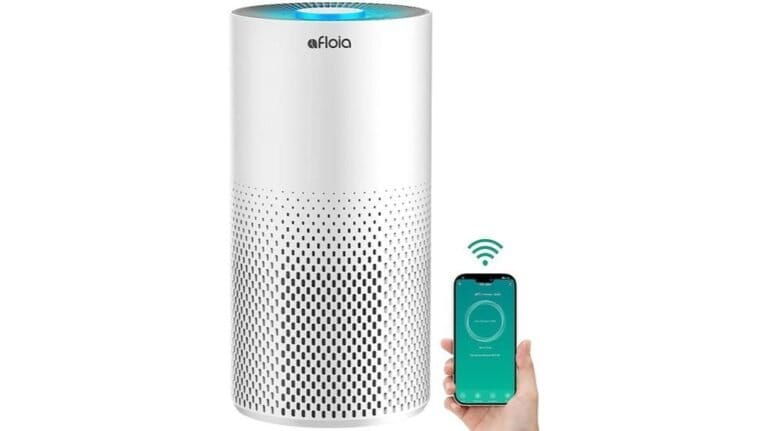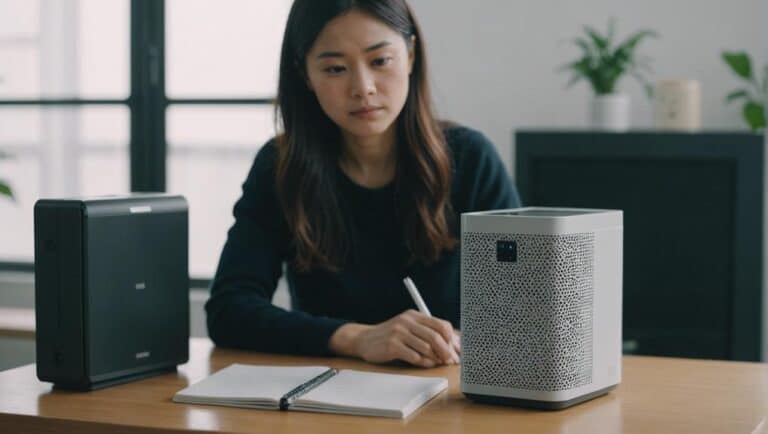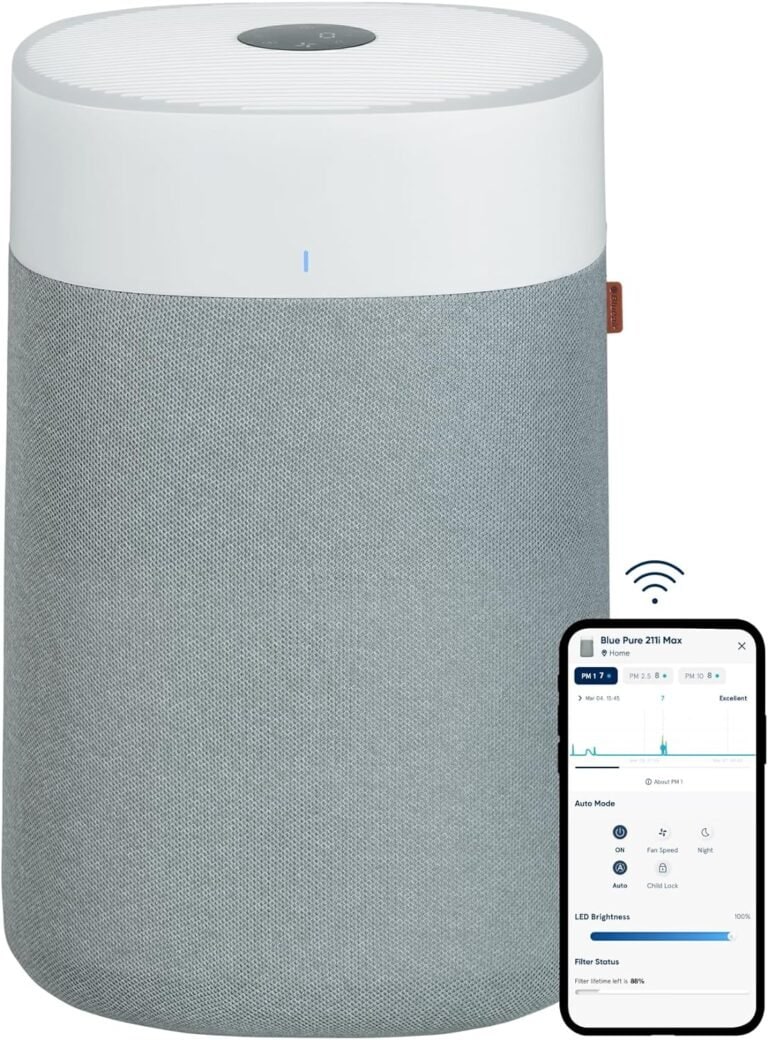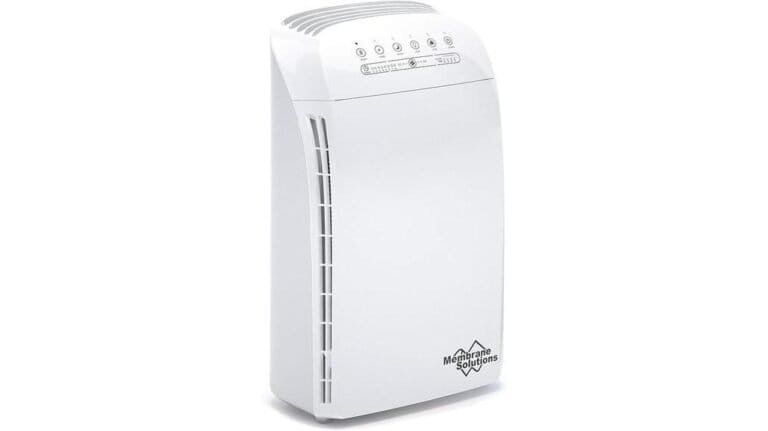Comparing Air Purifiers: Sharp vs Philips – Which Brand Offers Better Performance?
What is an air purifier and why do I need one?
An air purifier is a device that helps improve the air quality in your home by removing pollutants and allergens from the air. It is especially beneficial for individuals who suffer from respiratory conditions, allergies, or asthma. By purifying the air, these devices create a healthier living environment for you and your family.
Understanding the benefits of an air purifier
An air purifier offers several benefits. Firstly, it helps to remove airborne pollutants like dust, pollen, pet dander, and mold spores, reducing their presence in your home. This can significantly improve indoor air quality and reduce the risk of respiratory issues. Secondly, air purifiers can help to eliminate unpleasant odors, leaving your home smelling fresh and clean. Finally, air purifiers can remove harmful particles such as smoke, viruses, and bacteria, creating a healthier and safer environment for everyone.
How does an air purifier work?
Air purifiers work by drawing in air from the surrounding environment and passing it through a filtration system. This system consists of various filters, including a true HEPA (High-Efficiency Particulate Air) filter. The HEPA filter is designed to capture particles as small as 0.3 microns, effectively removing allergens, dust, pollen, and other contaminants from the air. The purified air is then released back into the room, creating a cleaner and fresher environment.
What types of pollutants can an air purifier remove?
An air purifier can remove a wide range of pollutants from the air. Some common pollutants include dust mites, pet dander, pollen, mold spores, smoke particles, and volatile organic compounds (VOCs), which are emitted by household products. By removing these pollutants, air purifiers can help alleviate allergy symptoms, improve respiratory health, and create a more comfortable living space.
Exploring the features of Philips air purifiers
Philips is a well-known brand in the home appliance industry, and their air purifiers are highly regarded for their performance and innovative features.

The technology behind Philips air purifiers
Philips air purifiers utilize advanced filtration technology to effectively remove pollutants and allergens from the air. They combine a pre-filter, a true HEPA filter, and an activated carbon filter to capture particles, eliminate odors, and reduce harmful gases. This multi-stage filtration process ensures that the air in your home is thoroughly purified.
Understanding the True HEPA filter in Philips air purifiers
The true HEPA filter used in Philips air purifiers is highly efficient in removing microscopic particles from the air. It can capture up to 99.97% of particles as small as 0.3 microns, including dust, pollen, pet dander, and mold spores. This makes it an ideal choice for individuals with allergies or asthma.
Comparing the different models of Philips air purifiers
Philips offers a range of air purifiers suitable for different room sizes and needs. Whether you have a small bedroom or a large living room, there is a Philips air purifier to suit your requirements. Their models also vary in features such as fan speed settings, timer functions, and air quality sensors, allowing you to customize the purification process according to your preferences.
Exploring the features of Sharp air purifiers
Sharp is another reputable brand in the air purifier market, known for its cutting-edge technology.

The technology behind Sharp air purifiers
Sharp air purifiers utilize Plasmacluster Ion technology, which generates positive and negative ions to deactivate harmful substances in the air. This technology helps to eliminate airborne viruses, bacteria, mold, and other allergens, creating a healthier environment.
Understanding the Plasmacluster Ion technology in Sharp air purifiers
The Plasmacluster Ion technology in Sharp air purifiers works by releasing ions that attach to airborne particles, neutralizing them and causing them to fall to the ground. This technology helps to reduce the presence of allergens, odors, and other pollutants in the air, providing a cleaner and more pleasant indoor environment.
Comparing the different models of Sharp air purifiers
Sharp offers a range of air purifiers suitable for different room sizes and needs. These models come with features like multi-stage filtration systems, air quality sensors, and customizable settings. Whether you need an air purifier for a small bedroom or a large living area, Sharp has options to suit your requirements.
Comparison between Philips and Sharp air purifiers
Both Philips and Sharp are reputable brands that offer high-quality air purifiers. However, there are some key differences to consider when choosing between the two.
General Comparison Table
| Features | Panasonic Air Purifiers | Sharp Air Purifiers |
|---|---|---|
| Filtration Technology | Nanoe™ technology: Releases nanosized particles to eliminate pollutants | Plasmacluster Ion technology: Releases ions to deactivate pollutants |
| Particle Removal | Captures particles as small as 0.3 micrometers | Removes various airborne particles like dust and pollen |
| Odor Elimination | Reduces odors including pet odors, cooking smells, and cigarette smoke | Neutralizes and eliminates odors caused by pets, tobacco, and food |
| Humidity Control | Some models may offer humidity control features | May not have specific humidity control features |
| Smart Features | May include intelligent sensors for air quality detection | May offer additional features like dust and odor sensors |
| Noise Level | Varies depending on the model | Varies depending on the model |
| Energy Efficiency | Varies depending on the model | Varies depending on the model |
| Additional Features | May include sleep mode, timers, and energy-saving modes | May include automatic operation modes and child lock |
Performance comparison: Philips vs Sharp
Both Philips and Sharp air purifiers are known for their effective air purification performance. However, the specific performance may vary depending on the model and the filtration technology used. It is important to compare the Clean Air Delivery Rate (CADR) and the coverage area of the air purifiers to determine their effectiveness in purifying the air in your specific space.
Filter efficiency: Philips vs Sharp
Both Philips and Sharp air purifiers use filters to capture and remove pollutants from the air. Philips air purifiers often utilize a true HEPA filter, which is highly efficient in removing particles as small as 0.3 microns. Sharp air purifiers, on the other hand, employ Plasmacluster Ion technology to neutralize and deactivate airborne particles. The filter efficiency of both brands is commendable, and the choice depends on your specific needs and preferences.
Noise levels: Philips vs Sharp
Noise levels can be an important factor to consider, especially if you plan to use the air purifier in your bedroom or other quiet areas of your home. Both Philips and Sharp air purifiers are designed to operate quietly, but it is advisable to check the decibel ratings of the models you are considering to ensure they meet your requirements for noise levels.
Choosing the right air purifier for your needs
When selecting an air purifier, there are several factors you should consider to ensure it meets your specific requirements.
Factors to consider when selecting an air purifier
Some important factors to consider include the size of the room or area you want to purify, the specific pollutants you want to target, the noise level of the air purifier, and any additional features or functions that are important to you.
Determining the ideal room size for an air purifier
Air purifiers are designed to cover specific room sizes. It is important to choose an air purifier that is capable of purifying the air in your desired space. Manufacturers usually provide information on the recommended room size for each model, which can help guide your decision.
Comparing additional features of air purifiers
Air purifiers may come with additional features such as air quality sensors, auto mode, timer functions, and remote control. These features can enhance the convenience and effectiveness of the air purifier, so it is worth considering which features are important to you.
Conclusion: Which brand offers better performance – Sharp or Philips?
Both Sharp and Philips offer excellent air purifiers with advanced technologies and features. The choice between the two ultimately depends on your specific needs, room size, and personal preferences.
Final verdict: Pros and cons of Philips air purifiers
Pros of Philips air purifiers include the use of true HEPA filters for efficient particle removal, a wide range of models to suit different needs, and innovative features like air quality sensors. However, some cons may include higher price points for certain models and the need to regularly replace filters for optimal performance.
Final verdict: Pros and cons of Sharp air purifiers
Pros of Sharp air purifiers include the use of Plasmacluster Ion technology for efficient purification, a range of models for different room sizes, and customizable settings for personalized comfort. However, some cons may include the need







One Comment